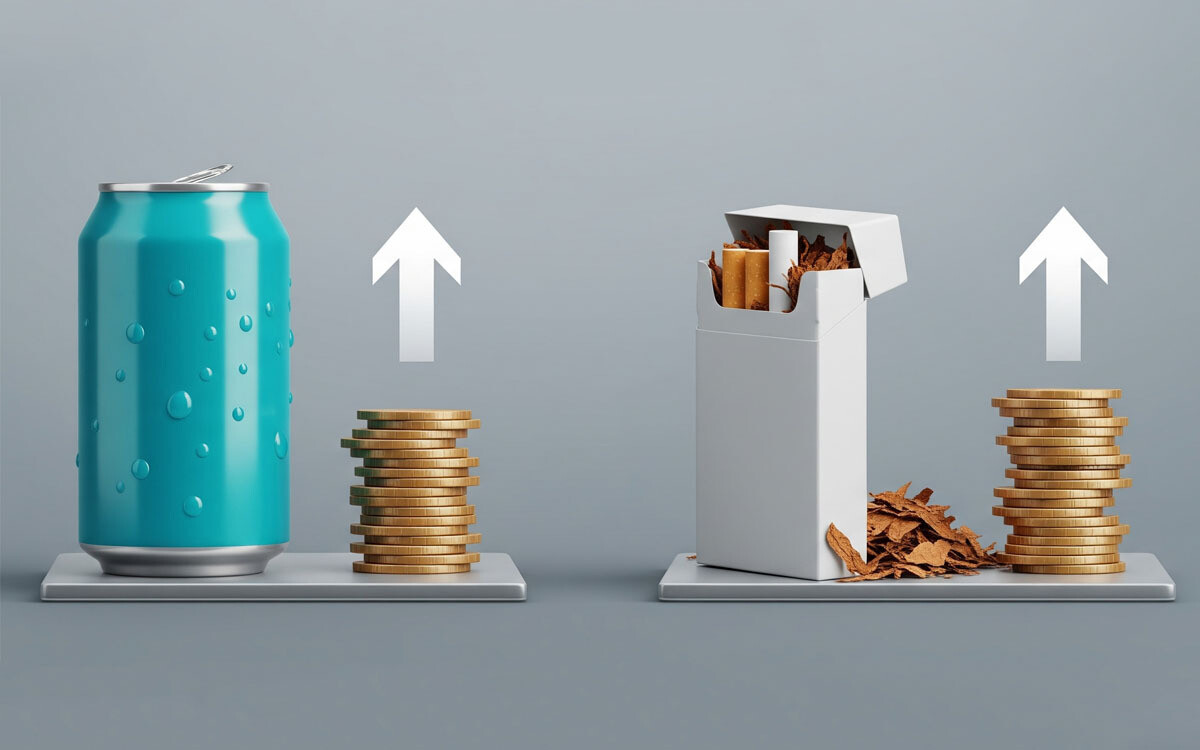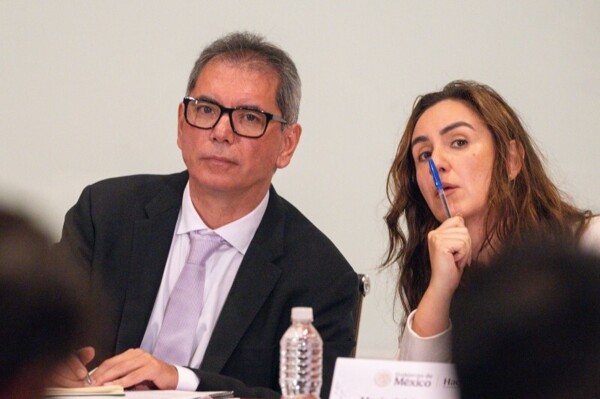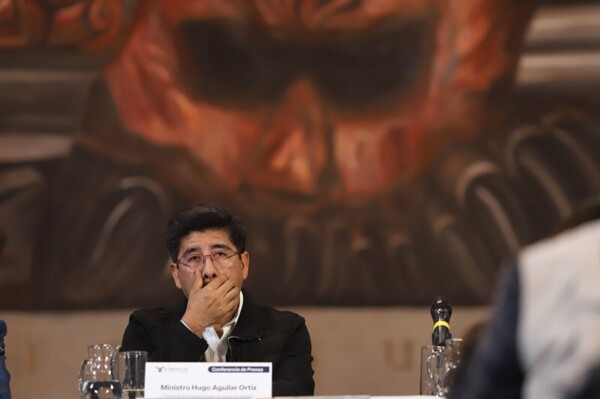
The Mexican Senate approved reforms to tax and fee laws. A new Category IV was created with a fixed fee of 104.50 pesos for zones like Chichén Itzá, Uxmal, and Dzibilchaltún. In the aviation sector, the cost of certification through inspection flights for air navigation aids increased by 57%, rising from 134,000 to 211,618 pesos per flight hour. For permanent residents, the payment increases from 6,494 to 13,578 pesos. New fees were also established, such as the authorization fee to visit vessels in high-seas navigation, like cruise ships, which will cost 297.89 pesos. Additionally, a fee of 294.01 pesos will be charged for the issuance of the exit authorization format for girls, boys, adolescents, and persons under legal guardianship. The adjustments also affect access to museums and archaeological zones. In some cases, the increases exceed 100%. For sites classified as Category I, which include emblematic venues like Teotihuacán, Tulum, Monte Albán, or the National Museum of Anthropology, the ticket price rises from 95.58 to 209.09 pesos. In Category II, which includes sites like Comalcalco, Dzibanché, and Malinalco, the entrance fee increases from 78.71 to 156.75 pesos. A senator added, “the new and updated taxes are so because the 'morenazo' [the ruling party's movement] dictates it” and stated that “the 'healthy tax' does not exist because the only intention is to raise revenue.” He warned about the destination of the collected funds, pointing out that “the reality is that they expect to raise an additional 42,000 million pesos, and the lie is exposed because, whenever the money from these new taxes enters the Public Treasury, there is no legal mechanism that directs it to the health system.” In general, the bill received 76 votes in favor and 37 against, and in particular, it was approved with 74 votes in favor, 37 against, and one abstention, after rejecting reservations presented by senators from PAN, PT, MC, PVEM, and PRI. In migratory matters, for example, the cost for foreign visitors without a work permit will increase from 860 to 983 pesos. For temporary residents, fees will increase in a staggered manner: from 5,328 to 11,740 pesos for one year; from 7,984 to 16,693 pesos for two years; from 10,112 to 21,142 pesos for three years; and from 11,984 to 25,907 pesos for four years. For Category III, where places like La Venta and Izapa are located, the fee increases from 73.09 to 143.69 pesos. The Senate of the Republic approved on Tuesday the reforms to the Law on the Special Tax on Products and Services (IEPS) and the Federal Law of Rights, which will be sent to the Federal Executive for promulgation. The modifications seek to update tax rates on products and services that pose a health risk and to adjust payments for public services, including migratory and telecommunications services. In the case of IEPS, the assembly approved the project in general with 75 votes in favor and 37 against, and in particular with 76 votes in favor and 34 against. After the vote, the Steering Board referred the bill to the Executive Branch. The reform adjusts the IEPS rate from 160% to 200% on cigars, cheroots, and other manufactured tobacco products, and from 30.4% to 32% for cigars and hand-made tobacco, with the objective of “making these products less affordable.” The definition of flavored beverages and their quota per liter was also modified, which will increase from $1.6451 pesos to $3.0818 pesos in 2025, seeking “to achieve changes in the eating patterns of Mexican society.” In the matter of betting games, the rate increases from 30% to 50%, with the intention of contributing to the fight against money laundering, “forcing taxpayers to transparent their income, reducing spaces for illicit operations.” Likewise, video games with violent, extreme, or adult content will be subject to an 8% IEPS, both in physical format and digital services, to “reduce the affordability of this type of video games and comply with the constitutional obligation to guarantee the protection of health and look after the best interest of the child.” It was clarified that oral solutions containing only anhydrous glucose, sodium chloride, potassium chloride, and trisodium citrate will be exempt from IEPS, with the objective of granting legal certainty to taxpayers and reinforcing measures against overweight and obesity. PAN's Raymundo Bolaños stated that “taxes on tobacco, flavored drinks, betting games, and even video games are increasing, all under the cynical disguise of 'healthy taxes' and other surnames with which half-truths are told, which are also lies.” “The money does not reach hospitals, nor health centers, nor prevention programs; it is not destined for diabetes or the fight against obesity.” In his opinion, if “the 'morenato' [the ruling party's movement] really cared about people's health, it would earmark the IEPS revenues for specific actions, such as guaranteeing the supply of medicines or the construction of hospitals,” but “it is simply and plainly destined to fill the public coffers and prepare an electoral machinery for the 2027 elections.” On the part of the ruling party, Senator Imelda Castro, pointed out that IEPS “is not simply a collection instrument, it is a public policy with economic, social, and environmental purposes, that directly impacts the quality of life of Mexicans.” She stated that “whoever produces or consumes goods that harm health or the environment should contribute to a greater extent to repair that damage or finance programs that mitigate it.” Regarding the destination of the collected funds, Castro pointed out that “each peso collected through this tax has a useful and tangible destination in national life: it finances hospitals, disease prevention programs, infrastructure, roads, education, and actions to address climate change.” She added that IEPS revenues “have been destined, for example, to strengthen preventive health programs, nutrition campaigns, and promotion of healthy habits” and emphasized that “each contribution derived from this tax is reinvested for the benefit of the population, especially the most vulnerable groups.” Migratory fees, access to museums, and other services increase. On the other hand, the Senate approved reforms to the Federal Law of Rights to keep updated the contributions on various public services. Likewise, the issuance of capacity certificates, licenses, or permits for aeronautical personnel increases by up to 20%, while airworthiness certificates increase by 32%. In telecommunications and broadcasting, modifications are included to allow the sharing of frequency bands between federal and state dependencies, as well as to exempt the payment of rights for the use of the radio spectrum by community and Afro-Mexican groups that operate for cultural, scientific, educational, or non-profit community purposes. Once approved in general and in particular, both reforms were sent to the Federal Executive for publication in the Official Gazette of the Federation (DOF).














